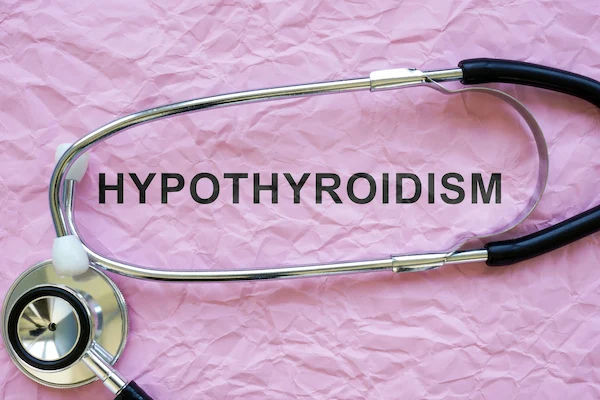Lifestyle Tips for Managing Hypothyroidism
Know about lifestyle tips to manage hypothyroidism. Learn about how & what of hypothyroidism with lifestyle tips for hypothyroidism.

Written by Dr. J T Hema Pratima
Reviewed by Dr. Dhankecha Mayank Dineshbhai MBBS
Last updated on 22nd Jul, 2025

Introduction
Hypothyroidism is a common condition where the thyroid gland doesn’t produce enough thyroid hormones, which are essential for regulating metabolism, energy levels, and overall health. While medication like levothyroxine is the primary treatment, certain lifestyle changes can help manage symptoms and improve your quality of life.
Here’s a simple guide to help you take control of your health while living with hypothyroidism.
Understanding Hypothyroidism
It includes what is hypothyroidism process is and its symptoms;
What Happens in Hypothyroidism?
Your thyroid gland, located in your neck, produces hormones that control metabolism, body temperature, heart rate, and energy levels. When it underperforms, you may experience:
Common Symptoms
The common symptoms of hypothyroidism include:
- Fatigue and sluggishness
- Weight gain or difficulty losing weight
- Dry skin and hair
- Feeling cold often
- Constipation
- Depression or low mood
- Muscle aches and weakness
If you notice these symptoms, consult a doctor for a simple blood test (TSH, T3, T4) to confirm hypothyroidism.
Consult endocrinologists for Personalised Advice
Lifestyle Tips to Manage Hypothyroidism
Tips to manage hypothyroidism include:
1. Eat a Thyroid-Friendly Diet
What you eat can impact thyroid function. Here’s how to optimize your diet:
Include Iodine-Rich Foods (in moderation)
These include seafood, dairy, eggs, and iodized salt that support thyroid hormone production.
Avoid excessive iodine like supplements unless prescribed, as too much can worsen hypothyroidism.
Selenium & Zinc for Thyroid Health
Brazil nuts, sunflower seeds, eggs, and legumes contain selenium, which helps convert thyroid hormones.
Zinc (found in nuts, seeds, and whole grains) supports immune function and thyroid health.
Limit Goitrogenic Foods (If Raw)
Foods like cabbage, broccoli, and soy can interfere with thyroid function when eaten raw in large amounts. Cooking reduces their effect.
Focus on Fiber & Hydration
Hypothyroidism slows digestion, leading to constipation. Eat whole grains, fruits, and vegetables, and drink plenty of water.
2. Exercise Regularly
Fatigue and weight gain are common struggles, but gentle exercise can help:
- Walking, Yoga, or Swimming
Boosts energy and metabolism. - Strength Training
Helps combat muscle weakness and supports weight management. - Listen to Your Body
Start slow and gradually increase intensity.
3. Manage Stress
Chronic stress can worsen thyroid function by increasing cortisol levels, which may interfere with hormone balance. Try:
- Meditation or Deep Breathing
Even 5-10 minutes daily helps. - Adequate Sleep
Aim for 7-8 hours per night to support healing. - Relaxing Hobbies
Reading, gardening, or light stretching can reduce stress.
4. Take Medications as Prescribed
- Levothyroxine should be taken on an empty stomach, ideally 30-60 minutes before breakfast.
- Avoid coffee, calcium, or iron supplements within 4 hours of medication, as they interfere with absorption.
- Regular Check-ups to check thyroid levels may change, so periodic blood tests ensure proper dosage.
5. Avoid Smoking & Limit Alcohol
- Smoking harms thyroid function and worsens symptoms.
- Alcohol can disrupt hormone balance and interfere with medication.
6. Keep Warm & Stay Comfortable
Since hypothyroidism makes you feel cold easily:
- Dress in layers.
- Drink warm beverages like herbal teas, warm water.
- Use heating pads if needed.
When to See a Doctor?
If symptoms persist despite medication and lifestyle changes, consult your doctor. You may need:
- A dosage adjustment.
- Tests for other conditions (like vitamin deficiencies or autoimmune issues..
Final Thoughts
Living with hypothyroidism can be challenging, but small, consistent changes in diet, exercise, and stress management can make a big difference. Be patient with yourself your body is adjusting, and progress takes time.
Consult endocrinologists for Personalised Advice
Consult endocrinologists for Personalised Advice

Dr. Nithin Reddy Modhugu
Endocrinologist
6 Years • MBBS, MD (General Medicine), DNB (Endocrinology)
Hyderabad
Dr. Nithin's Endocrine Clinic, Hyderabad
(100+ Patients)

Dr. Gayatri S
Endocrinologist
4 Years • Suggested Qualifictaion- MBBS, MD (Internal Medicine), DM (ENDOCRINOLOGY)
Nellore
Narayana hospital, Nellore

Dr. Venkata Rakesh Chintala
Endocrinologist
8 Years • MBBS,MD( GEN MEDICINE), DM ( ENDOCRINOLOGY)
Krishna district
Sanjeevani Hospital, Krishna district

Dr. Arunava Ghosh
General Physician/ Internal Medicine Specialist
9 Years • MBBS,MD(GENL.MED.),DM(ENDOCRINOLOGY)
Kolkata
VDC Clinic, Kolkata

Dr. Shiva Madan
Endocrinologist
10 Years • MBBS , MD (General medicine) , DM (Endocrinology)
Bikaner
Sushma diabetes and Endocrine center, Bikaner
Consult endocrinologists for Personalised Advice

Dr. Nithin Reddy Modhugu
Endocrinologist
6 Years • MBBS, MD (General Medicine), DNB (Endocrinology)
Hyderabad
Dr. Nithin's Endocrine Clinic, Hyderabad
(100+ Patients)

Dr. Gayatri S
Endocrinologist
4 Years • Suggested Qualifictaion- MBBS, MD (Internal Medicine), DM (ENDOCRINOLOGY)
Nellore
Narayana hospital, Nellore

Dr. Venkata Rakesh Chintala
Endocrinologist
8 Years • MBBS,MD( GEN MEDICINE), DM ( ENDOCRINOLOGY)
Krishna district
Sanjeevani Hospital, Krishna district

Dr. Arunava Ghosh
General Physician/ Internal Medicine Specialist
9 Years • MBBS,MD(GENL.MED.),DM(ENDOCRINOLOGY)
Kolkata
VDC Clinic, Kolkata

Dr. Shiva Madan
Endocrinologist
10 Years • MBBS , MD (General medicine) , DM (Endocrinology)
Bikaner
Sushma diabetes and Endocrine center, Bikaner
